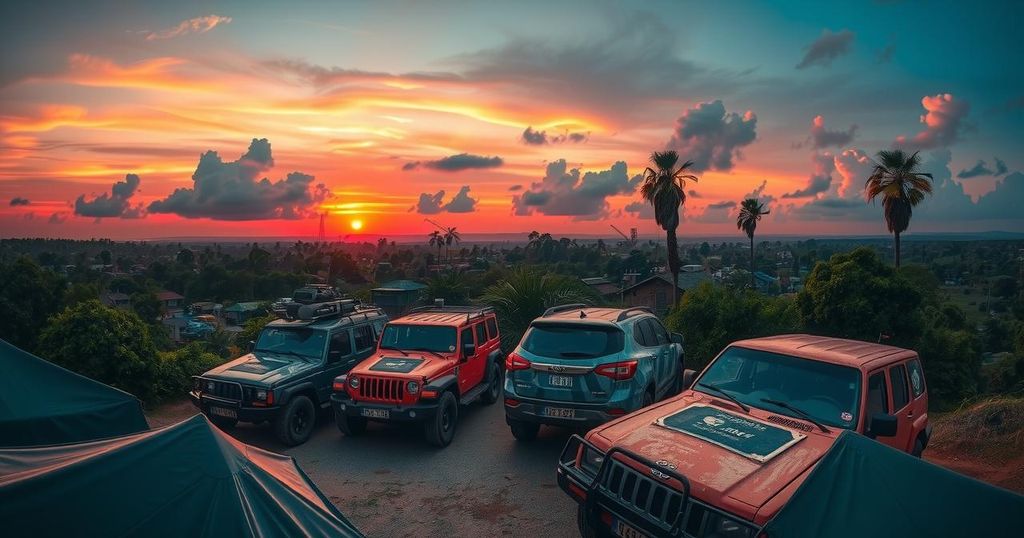M23 Captures Key Town in DR Congo Amid Ceasefire Efforts
The M23 fighters have seized the mining town of Walikale in DR Congo, marking a significant advance amidst ceasefire negotiations between Congolese and Rwandan leaders. The ongoing conflict has disrupted mining operations and raised concerns over regional instability, while efforts for a ceasefire remain uncertain due to unresolved terms and the group’s objectives.
M23 fighters, supported by Rwanda, have captured the mining town of Walikale in the Democratic Republic of Congo, as confirmed by local sources. This gain signifies the group’s most significant advancement into the interior of the country since its emergence in 2012. The takeover occurred amid ongoing discussions for a ceasefire between Congolese President Felix Tshisekedi and Rwandan President Paul Kagame, who met in Doha to express their desire for peace. However, the terms of such a ceasefire remain unresolved, necessitating further negotiation efforts, as stated by mediator Qatar.
The seizure of Walikale, a town with approximately 60,000 residents, forced the Congolese army (FARDC) to retreat, positioning themselves about 30 kilometers away in Mubi according to military reports. The violence has already disrupted operations at Alphamin’s tin mine, causing evacuations and halting production, thereby increasing tin prices due to supply chain concerns. This rise in prices is attributed to the heightened demand from the electronics and renewable energy sectors, analysts suggest.
Local accounts describe the M23 fighters occupying various neighborhoods within Walikale, with residents witnessing armed groups moving through their vicinity. A base operated by Doctors Without Borders experienced crossfire during the conflict, although no injuries were reported, raising concerns over future casualties. The ongoing military offensive raises alarms regarding potential regional warfare, as the M23 continues to push deeper into North and South Kivu provinces, already under their control.
Walikale strategically connects major routes from Goma and Bukavu, both cities currently dominated by the M23. The Congolese government accuses Rwanda of supporting the M23 to exploit valuable mineral resources, a claim Rwanda denies despite a UN report indicating the presence of Rwandan troops assisting the armed group. Following their meeting in Doha, no concrete details emerged regarding ceasefire implementation, as the involvement of M23 on the ground is crucial.
Prior peace negotiations were recently disrupted, with the M23 lacking a clear agenda or demands, thus aiming primarily to remove President Tshisekedi from power. Various ceasefires have been brokered in the past, yet each has ultimately failed since the end of 2021, complicating the peace efforts in the region.
In summary, the M23’s capture of Walikale underscores a significant escalation in the conflict in the Democratic Republic of Congo, despite attempts at brokered peace by regional leaders. The situation has dire implications for local populations and the mining industry, further exacerbating tensions amid unresolved negotiations for a ceasefire. Continued international focus and mediation efforts remain essential to address the underlying issues contributing to this prolonged conflict.
Original Source: www.rfi.fr




Post Comment